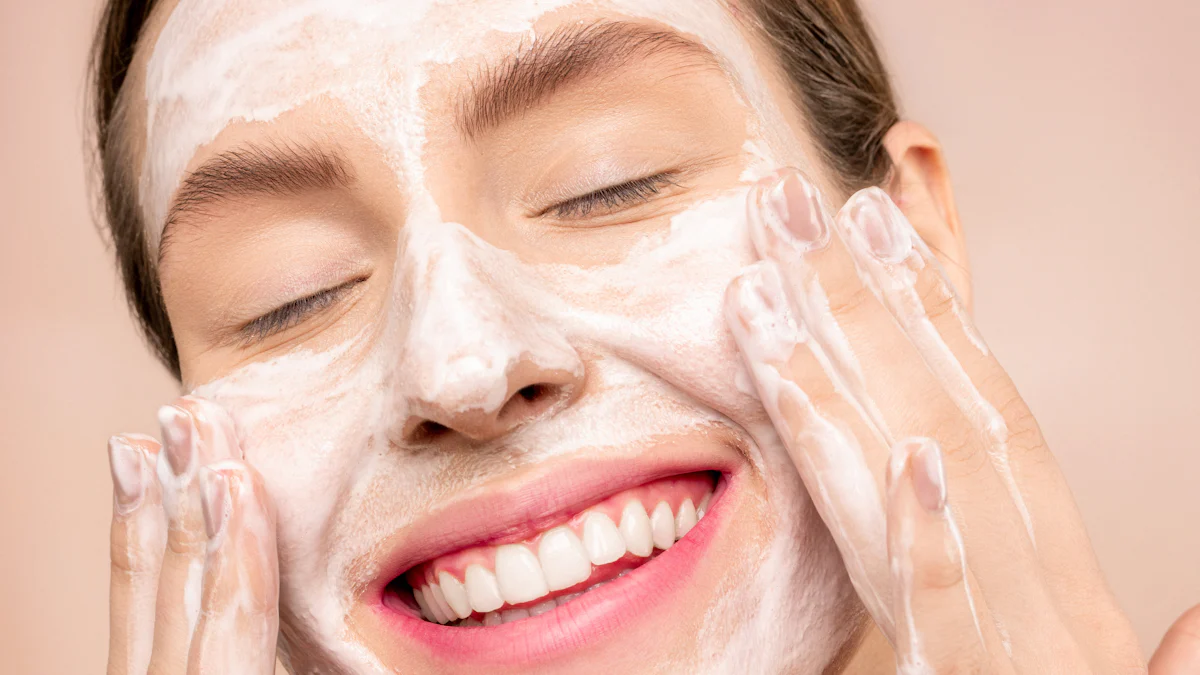
Propylene glycol stands out as a key ingredient in modern cosmetics. It works to improve the texture of products, making them smoother and easier to apply. This ingredient also enhances the performance of beauty formulations by helping active ingredients penetrate your skin more effectively. Its ability to retain moisture ensures your skin stays hydrated and soft. With its versatile properties, propylene glycol has become a trusted component in many skincare and beauty products, offering noticeable benefits for your daily routine.
Key Takeaways
- Propylene glycol enhances the absorption of active ingredients in beauty products, ensuring you get the most out of your skincare routine.
- As a powerful humectant, propylene glycol helps retain moisture, keeping your skin hydrated and soft, especially in dry climates.
- This ingredient stabilizes cosmetic formulations, preventing separation and extending shelf life, so your products remain effective longer.
- Propylene glycol contributes to a smooth, lightweight texture in products, making application effortless and enjoyable.
- It is generally safe for most skin types, but those with sensitive skin should perform a patch test before use to avoid irritation.
- Choosing products with propylene glycol can provide a cost-effective solution without sacrificing quality or performance in your beauty routine.
What Is Propylene Glycol and Why Is It Used in Cosmetics?
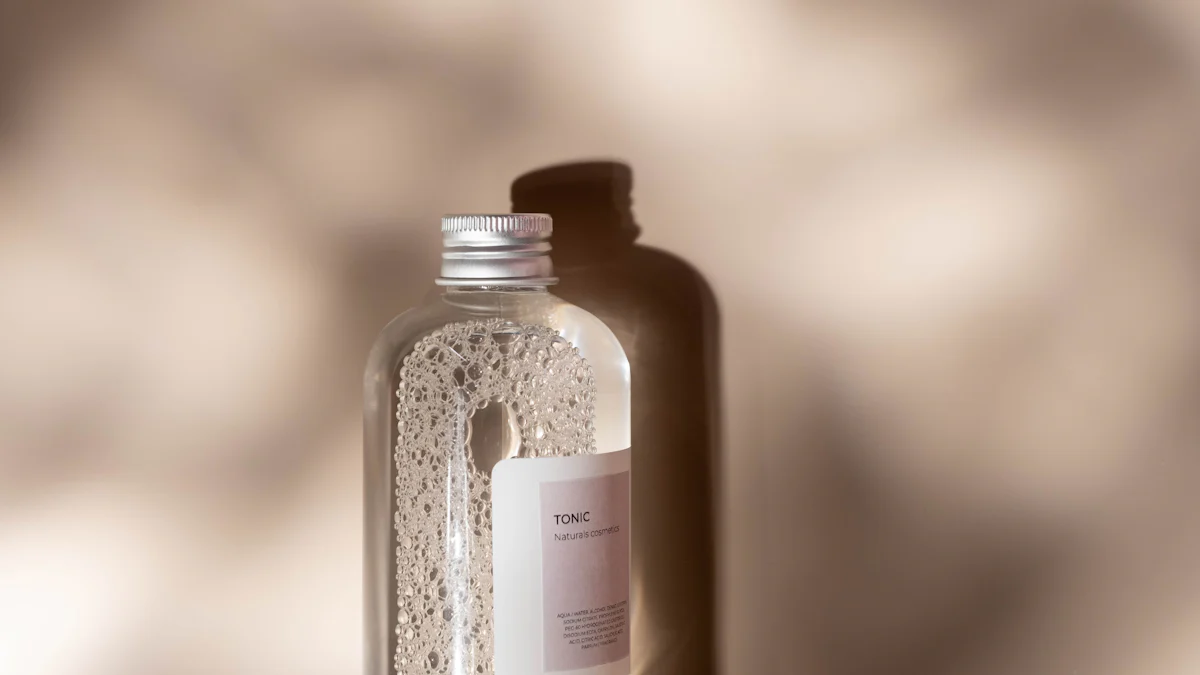
Defining Propylene Glycol
Propylene glycol is a synthetic compound derived from petroleum. It appears as a clear, odorless liquid with a slightly sweet taste. In cosmetics, it acts as a humectant, solvent, and emollient. Its ability to attract and retain water makes it a valuable ingredient for maintaining skin hydration. You will often find it listed on product labels due to its versatility and compatibility with other ingredients.
The Role of Propylene Glycol in Cosmetic Formulations
Propylene glycol plays several critical roles in beauty products. It helps dissolve active ingredients, ensuring they mix evenly within formulations. This property allows skincare products to deliver their benefits more effectively. It also enhances the absorption of ingredients into your skin, improving the overall performance of the product. Additionally, it stabilizes formulations, preventing separation and extending shelf life. These functions make it indispensable in modern cosmetic science.
Common Applications in Beauty Products
You encounter propylene glycol in a wide range of beauty products. It is commonly used in moisturizers, serums, and lotions to boost hydration. Many makeup products, such as foundations and primers, include it to create a smooth and lightweight texture. Hair care products like shampoos and conditioners rely on it to improve consistency and enhance moisture retention. Even deodorants and sunscreens benefit from its ability to stabilize formulations and improve application.
The Benefits of Propylene Glycol in Your Beauty Routine
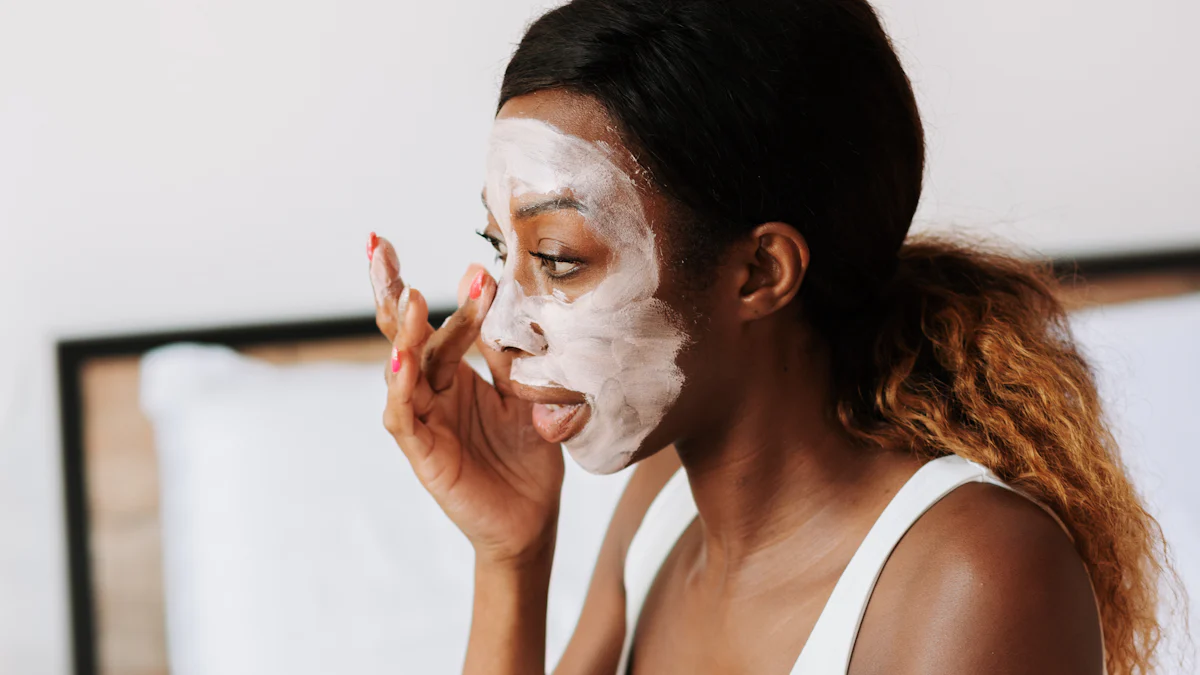
Enhances Product Absorption for Better Results
Propylene glycol improves how well your skin absorbs beauty products. It acts as a carrier, helping active ingredients penetrate deeper into your skin layers. This ensures that the nutrients and beneficial compounds in your skincare products reach where they are needed most. When you use a serum or moisturizer containing propylene glycol, you may notice faster and more noticeable results. This ingredient maximizes the effectiveness of your beauty routine by ensuring that every application delivers optimal benefits.
Boosts Skin Hydration and Moisture Retention
Keeping your skin hydrated is essential for maintaining a healthy and youthful appearance. Propylene glycol works as a humectant, drawing moisture from the environment and locking it into your skin. This helps prevent dryness and keeps your skin feeling soft and supple throughout the day. Products with propylene glycol are especially beneficial if you live in a dry climate or have naturally dehydrated skin. By using these products, you can maintain balanced hydration levels and enjoy a smoother complexion.
Improves Product Stability and Shelf Life
Propylene glycol plays a crucial role in maintaining the quality of your beauty products. It stabilizes formulations by preventing ingredients from separating over time. This ensures that your creams, lotions, and serums remain consistent in texture and effectiveness. Additionally, it extends the shelf life of products by reducing the risk of spoilage. When you choose products containing propylene glycol, you can trust that they will stay fresh and perform well until the last drop.
Creates a Smooth, Lightweight Texture in Formulations
Propylene glycol plays a key role in creating beauty products that feel smooth and lightweight on your skin. When you apply a product, its texture often determines how comfortable it feels and how easily it spreads. This ingredient ensures that creams, lotions, and serums glide effortlessly across your skin without leaving a greasy or heavy residue. You can enjoy a seamless application experience, which makes your skincare routine more enjoyable and effective.
In addition to enhancing the feel of products, propylene glycol helps maintain consistency. It prevents clumping or uneven textures, ensuring that every drop of your product delivers the same quality. This uniformity allows you to apply just the right amount, avoiding waste and maximizing the benefits of your beauty products.
For makeup, this ingredient is especially valuable. Foundations and primers with propylene glycol achieve a silky finish that blends well with your skin. This creates a natural, flawless look that lasts throughout the day. Hair care products also benefit from its ability to improve texture, making shampoos and conditioners easier to distribute evenly.
By choosing products with propylene glycol, you ensure that your beauty routine feels luxurious and effortless. The smooth, lightweight texture it provides enhances not only the performance of your products but also your overall experience.
Is Propylene Glycol Safe for Your Skin?
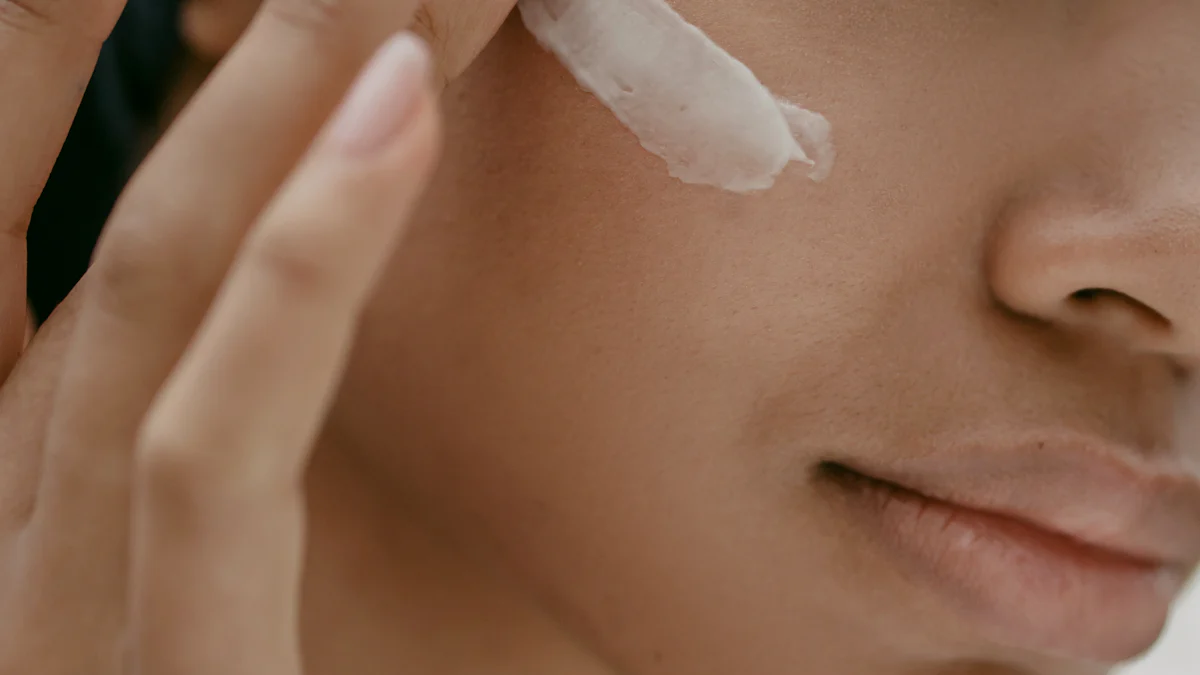
Addressing Myths and Misconceptions About Propylene Glycol
You may have come across claims that propylene glycol is harmful or unsafe. These misconceptions often arise from confusion about its origin or its use in other industries. While it is true that propylene glycol is derived from petroleum, this does not make it dangerous. Many safe and effective cosmetic ingredients share a similar origin.
Some believe that propylene glycol causes skin irritation or allergic reactions. However, studies show that most people tolerate it well. Only a small percentage of individuals with highly sensitive skin may experience mild irritation. This reaction is rare and usually linked to high concentrations of the ingredient. In cosmetics, manufacturers use it in carefully measured amounts to ensure safety.
It is important to separate myths from facts. Propylene glycol has been used in beauty products for decades, and its safety profile is well-documented. Understanding the truth about this ingredient can help you make informed decisions about your skincare routine.
Scientific Research and Regulatory Approvals
Scientific research supports the safety of propylene glycol in cosmetics. Dermatologists and toxicologists have studied its effects extensively. The results consistently show that it is safe for use in skincare and beauty products when used as directed. Its role as a humectant and solvent makes it a valuable addition to formulations without posing significant risks.
Regulatory bodies worldwide approve the use of propylene glycol in cosmetics. The U.S. Food and Drug Administration (FDA) classifies it as “Generally Recognized as Safe” (GRAS) for use in food, pharmaceuticals, and cosmetics. Similarly, the European Union’s Cosmetic Regulation permits its use in beauty products, provided it meets specific safety standards. These approvals reflect the confidence of experts in its safety.
When you choose products containing propylene glycol, you can trust that they meet strict regulatory guidelines. These standards ensure that the ingredient is used responsibly and in amounts that are safe for your skin.
Tips for Safe Use of Products Containing Propylene Glycol
To enjoy the benefits of propylene glycol without concerns, follow a few simple tips. First, always check the ingredient list on your beauty products. If you have sensitive skin, perform a patch test before using a new product. Apply a small amount to a discreet area and wait 24 hours to see if any reaction occurs.
Choose products from reputable brands that prioritize quality and safety. Trusted manufacturers carefully formulate their products to include safe concentrations of propylene glycol. This ensures that you can use them confidently as part of your beauty routine.
If you experience any irritation, discontinue use and consult a dermatologist. They can help determine whether propylene glycol or another ingredient caused the reaction. Remember, individual skin types vary, and what works for most may not suit everyone.
By following these tips, you can safely incorporate products with propylene glycol into your skincare regimen. This ingredient offers numerous benefits, and understanding how to use it responsibly ensures you get the best results.
How Does Propylene Glycol Compare to Alternative Ingredients?
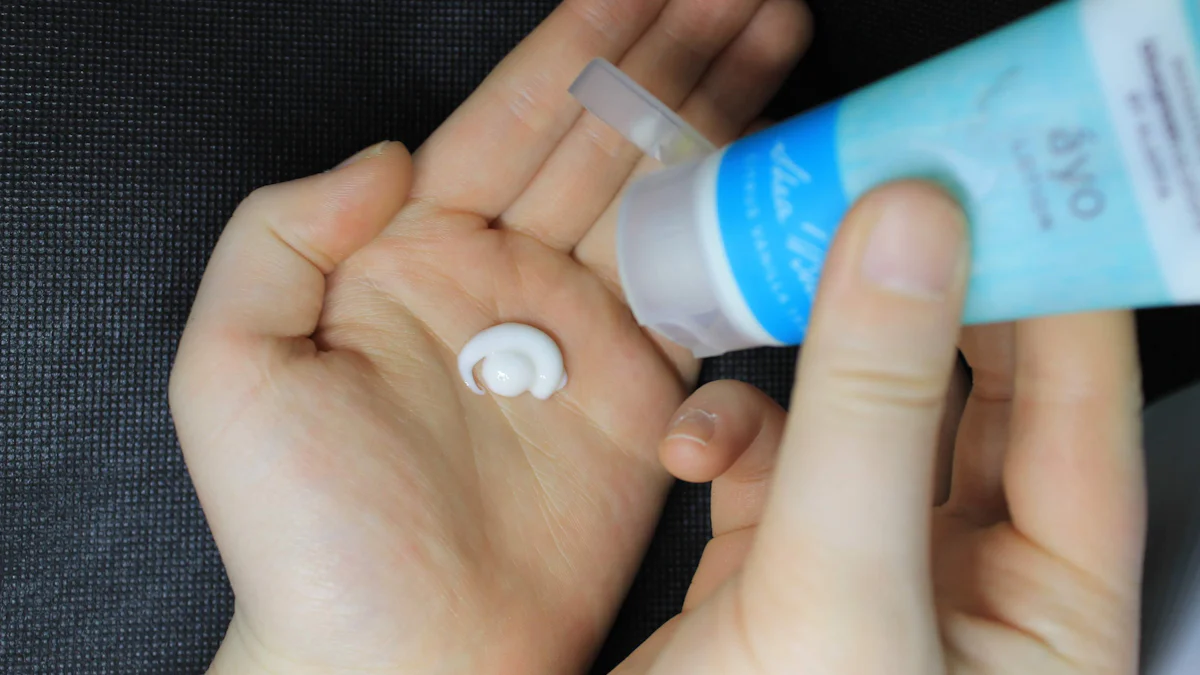
Comparing Hydration and Moisturizing Properties
Hydration plays a vital role in maintaining healthy skin. Propylene glycol excels as a humectant, drawing moisture from the environment and locking it into your skin. This ability ensures long-lasting hydration, even in dry conditions. Many alternative ingredients, such as glycerin or hyaluronic acid, also provide moisturizing benefits. However, propylene glycol stands out because it balances hydration with a lightweight feel. It absorbs quickly without leaving a sticky or heavy residue, making it ideal for daily use.
Some alternatives may focus solely on hydration but lack versatility. For example, glycerin is effective but can feel tacky when used in higher concentrations. Propylene glycol avoids this issue by delivering moisture while maintaining a smooth texture. If you want a product that hydrates without compromising comfort, this ingredient offers a reliable solution.
Stability and Versatility in Cosmetic Formulations
Stability ensures that your beauty products remain effective over time. Propylene glycol enhances the stability of formulations by preventing ingredient separation. This property keeps creams, serums, and lotions consistent in texture and performance. Alternatives like polyethylene glycol or xanthan gum also contribute to stability, but they may not offer the same level of versatility.
Propylene glycol works seamlessly with a wide range of ingredients. It acts as a solvent, helping active compounds dissolve evenly within formulations. This compatibility allows manufacturers to create products that deliver multiple benefits in one application. Alternatives may require additional stabilizers or emulsifiers, which can complicate formulations. By choosing products with propylene glycol, you benefit from a streamlined and effective approach to skincare.
Cost-Effectiveness and Accessibility Compared to Alternatives
Affordability matters when selecting beauty products. Propylene glycol provides a cost-effective solution without sacrificing quality. Its widespread availability makes it an accessible choice for both consumers and manufacturers. Alternatives like hyaluronic acid or plant-based humectants often come with higher production costs. These expenses can lead to pricier products, limiting their accessibility.
In addition to affordability, propylene glycol offers consistent performance. Its production process ensures uniform quality, which translates to reliable results in your skincare routine. While some alternatives may appeal to niche markets, they may not deliver the same balance of cost and effectiveness. Propylene glycol remains a practical option for those seeking high-quality beauty products at a reasonable price.
Propylene glycol plays a vital role in modern cosmetics. It enhances hydration, improves absorption, and ensures product stability. These benefits make it an essential ingredient for effective skincare. Its safety and versatility have been proven through extensive research, giving you confidence in its use. By understanding its value, you can make informed choices and elevate your beauty routine. Incorporating products with propylene glycol allows you to experience smoother textures, better results, and long-lasting hydration. This ingredient empowers you to achieve healthier, more radiant skin with ease.
FAQ
What Is Propylene Glycol Made From?
Propylene glycol is a synthetic compound derived from petroleum. Manufacturers create it through a process called hydrolysis, which involves combining propylene oxide with water. This process ensures a high level of purity, making it safe for use in cosmetics and skincare products.
Can Propylene Glycol Cause Skin Irritation?
Most people tolerate propylene glycol well. However, individuals with highly sensitive skin may experience mild irritation or redness. This reaction is rare and usually occurs when the ingredient is present in high concentrations. To avoid issues, perform a patch test before using a new product.
Is Propylene Glycol the Same as Antifreeze?
No, propylene glycol is not the same as antifreeze. While it is used in some industrial applications, the type used in cosmetics is highly purified and safe for skin contact. The confusion arises because ethylene glycol, a different compound, is commonly associated with antifreeze.
Does Propylene Glycol Clog Pores?
Propylene glycol is non-comedogenic, meaning it does not clog pores. Its lightweight texture allows it to absorb quickly into the skin without leaving a greasy residue. This makes it suitable for all skin types, including oily and acne-prone skin.
Can You Use Products with Propylene Glycol Daily?
Yes, you can use products containing propylene glycol daily. Its hydrating and stabilizing properties make it ideal for regular use in moisturizers, serums, and other skincare items. Always follow the product’s instructions for the best results.
How Does Propylene Glycol Compare to Glycerin?
Both propylene glycol and glycerin act as humectants, drawing moisture to the skin. However, propylene glycol absorbs faster and feels lighter on the skin. Glycerin can sometimes feel sticky, especially in higher concentrations, while propylene glycol provides a smoother application.
Is Propylene Glycol Safe for Children?
Propylene glycol is generally safe for children when used in cosmetics and skincare products formulated for their age group. Always choose products specifically designed for children and consult a pediatrician if you have concerns about any ingredient.
Does Propylene Glycol Have a Smell?
Propylene glycol is odorless, making it an excellent choice for beauty products. It does not interfere with the fragrance of the formulation, allowing manufacturers to create products with pleasant scents without compromise.
Can Propylene Glycol Be Used on Sensitive Skin?
Yes, propylene glycol can be used on sensitive skin, but caution is advised. If you have sensitive skin, perform a patch test before applying a new product. Look for formulations labeled as suitable for sensitive skin to minimize the risk of irritation.
Why Is Propylene Glycol in So Many Beauty Products?
Propylene glycol offers multiple benefits, including hydration, improved absorption, and product stability. Its versatility makes it a go-to ingredient for manufacturers. It works well in various formulations, from moisturizers to makeup, ensuring consistent performance and quality.
Post time: Dec-26-2024

